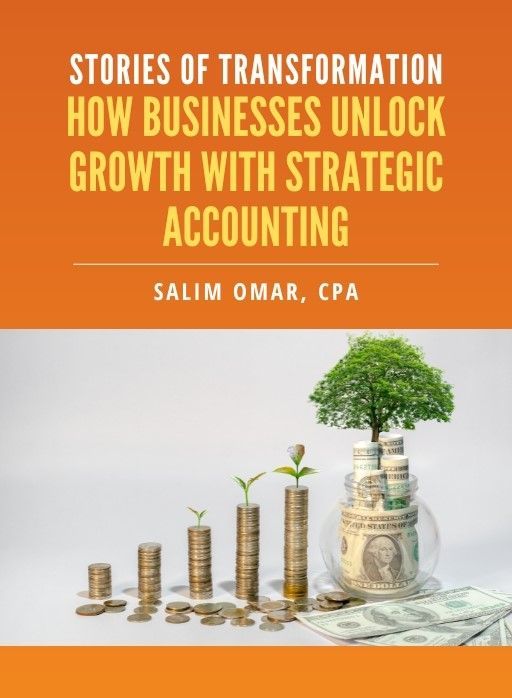When DIY Bookkeeping Starts Costing You Money

Doing your own bookkeeping sounds like a smart way to save money—until it isn’t. For many business owners, the DIY approach starts as a money-saver and turns into a mess of misclassified expenses, missed deductions, late fees, and unexpected IRS notices. Sound familiar? If you’ve ever spent a Saturday buried in receipts or tried reconciling accounts only to find you’re off by thousands, you’re not alone.
Straight Talk CPAs has worked with dozens of businesses that started with good intentions and ended up paying the price—literally. Whether you’re using a spreadsheet, an app, or just hoping everything works itself out, there comes a point where DIY bookkeeping becomes more expensive than hiring help.
In this blog, we’ll walk through real-life scenarios where do-it-yourself bookkeeping went off the rails and show you the red flags that it’s time to outsource.
The Cost of Bookkeeping Mistakes
Bookkeeping errors don’t just mess with your numbers—they can ripple into every corner of your business. Misreporting income, skipping payroll liabilities, or categorizing expenses incorrectly can lead to:
- Overpaying taxes
- Underreporting income (hello, audit risk)
- Missing out on legitimate deductions
- Late payment penalties
- Poor cash flow visibility
Real Scenario: Missed Deduction = $8,000 Lost
A marketing agency owner decided to manage her books in a basic spreadsheet. Things seemed fine until tax season. She handed over her numbers to a tax preparer, who filed her return with what she provided. What wasn’t included? Home office expenses, equipment purchases, and software subscriptions—none of which she realized were deductible. The result? She overpaid by more than $8,000 in taxes.
When she came to Straight Talk CPAs the following year, our team helped clean up her books and build a proper chart of accounts. The difference was night and day—not just in deductions, but in peace of mind.
When Your Time Is the Real Expense
Let’s talk about the hidden cost of DIY bookkeeping: time. Bookkeeping isn’t just data entry. It’s reconciling accounts, tracking receipts, understanding sales tax, staying on top of accounts payable and receivable, and more.
Even if you’re using QuickBooks or another tool, there’s a learning curve—and regular maintenance. If you're spending 5–10 hours a week on bookkeeping, that’s time you’re not using to grow your business, serve clients, or develop new offers.
Real Scenario: Owner Burnout
A gym owner handled everything—training clients, managing staff, ordering supplies, and yes, keeping the books. Every Sunday, he’d spend 6 hours catching up on receipts, fixing payroll mistakes, and tracking client memberships. Over time, it wore him down.
By the time he hired Straight Talk CPAs, the books were months behind and cash flow tracking was nonexistent. Once our team took over, not only were the books current, but he gained a real-time view of his revenue, profit margins, and future payroll obligations. He got his Sundays back—and avoided burnout.
The Tax Trouble You Don’t See Coming
One of the most dangerous side effects of poor bookkeeping? Tax problems. You might not notice them until months later, when you get an IRS letter about underreported income, or when a lender denies a loan due to messy financials.
Real Scenario: Sales Tax Disaster
An eCommerce business was managing sales tax manually across multiple states. The owner didn’t realize new nexus laws meant she had to register and file in additional states. DIY spreadsheets weren’t tracking it properly, and no returns had been filed in three of the required states.
By the time she reached out for help, she owed thousands in back taxes and penalties. Straight Talk CPAs worked with the state agencies to reduce penalties and set up proper systems—but the stress and risk could have been avoided altogether with professional support from the beginning.
Signs It’s Time to Outsource Your Bookkeeping
Still on the fence? Here are some clear signals that it’s time to get a professional on board:
1. You’re Behind on Your Books
If you’re playing catch-up every quarter (or haven’t touched your books in months), it’s costing you more in time and mistakes than outsourcing would.
2. You Dread Tax Season
If April rolls around and you feel a sense of doom, that’s a sign your bookkeeping isn’t where it should be. Organized books mean smoother tax prep and better tax savings.
3. Cash Flow Confuses You
You know your sales numbers, but can’t explain where your money went? That’s a cash flow problem—and better bookkeeping can solve it.
4. You’re Making Business Decisions Blind
Without current and accurate financials, it’s hard to hire, invest, or grow confidently. Good bookkeeping gives you real numbers to work with.
5. You’re Losing Sleep Over Finances
When the financial side of your business starts affecting your health or mental clarity, it’s time to hand it over to someone you trust.
What Outsourced Bookkeeping Looks Like
Here bookkeeping isn’t just about categorizing transactions. It’s about helping businesses get clear, organized, and confident with their numbers. That includes:
- Monthly reconciliations
- Clean financial reports
- Year-end tax-ready books
- Guidance on expense tracking and compliance
- Real humans who care about your business
You Don’t Have to DIY Everything
There’s a lot to be said for the entrepreneurial spirit. But trying to do it all—especially the financial stuff—can quickly turn into a liability. Bookkeeping is one of those tasks where the ROI of outsourcing is clear.
Hiring a professional doesn’t mean losing control—it means gaining clarity, consistency, and confidence in your numbers.
Free eBook:
Stories of Transformation


Salim is a straight-talking CPA with 30+ years of entrepreneurial and accounting experience. His professional background includes experience as a former Chief Financial Officer and, for the last twenty-five years, as a serial 7-Figure entrepreneur.




